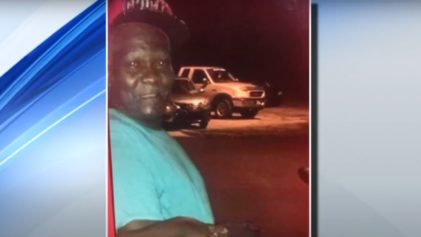
Just as she’s making the rounds on Capitol Hill, allowing senators to get to know this proud Black woman, Holder announced that the Justice Department would be taking up an investigation into the death of Eric Garner, now that a Staten Island grand jury failed to indict police officer Daniel Pantaleo, shocking and enraging many across the country.
As the U.S. Attorney for the Eastern District of New York, which includes Brooklyn, Queens, Staten Island and Long Island, Lynch, 55, will run the investigation. She leads an office that has become renowned for its work on organized crime, terrorism and public corruption. As the Garner case shows, the New York office gets embroiled in some of the most politically explosive cases of our time.
The question on the minds of many is whether the feds will make any difference. The Justice Department didn’t make a difference in the case of Trayvon Martin, where officials said there wasn’t sufficient evidence to support a civil rights claim against George Zimmerman.
It appears this will be the same result in Ferguson, where Holder said the federal government was also investigating whether Darren Wilson denied Michael Brown’s civil rights.
So now the Justice Department pledges to step in again when the state system failed in New York. But with a higher bar of proving that a police officer “willfully” denied Garner of his civil rights, it’s not clear whether Justice will ever be able to make cases against officers that will stand up in court, so hard is it to prove what’s in an officer’s heart.
However, Lynch appears to be the right person for the job. She has shown in the past that she has the courage to go after the New York Police Department and public officials when they step over into criminal behavior. One of her most prominent cases was the successful prosecution of members of the NYPD in the infamous Abner Louima case in 1997. Louima, 30, a Haitian immigrant, was beaten and sodomized with a broom handle by police officers in Brooklyn, who caused extensive internal damage. The case was such a racial tinderbox in the city that it prompted widespread protests and angry marches led by Rev. Al Sharpton and other activists.
Discussing the Louima case, Lynch told the Harvard Law School bulletin, “It was a very tense atmosphere. It was extremely racially and politically charged at the time. My way of dealing with high-profile cases like that is to completely separate from the press. What you have to do is insulate yourself.”
Lynch said the Louima case helped her understand why she did prosecutorial work.
“There were people who, until I worked on the Louima case, thought, Why do you do this? To me, I do it because I think everyone deserves protection,” she said. “Frankly, it shouldn’t be an easy thing to stand up and say this person by their actions has forfeited their right to walk among free people.”
Lynch was certainly no stranger to racism growing up in North Carolina in the 1960s and 70s. Her father, the Rev. Lorenzo Lynch, 82, told the News Observer last month of some of the trials his daughter endured. When Loretta, new to Durham, where the family had moved from Greensboro, scored extremely high on a standardized test at a predominantly white school, the school administrators made a request of her.
“She did so well, they said, ‘This is wrong, you have to retake the test,’ ” her father recalled. “She took it again, and do you know, she scored even higher.”
During her years in Durham, there were citywide sit-ins, marches and rallies for equal rights and integration of the schools. Lynch had an afterschool job at a fast-food restaurant, her father said, and she was a fabulous seamstress who not only made outfits for herself, but made clothes for her mother for special occasions. When it was time to graduate, Lynch finished at the top of her high school class. But her father said school administrators came to her again. They told Lynch she had to share the title of valedictorian of the class of 1977 with three other students—one of whom was white.
“Our prosecutors,” Holder said, “will conduct an independent, thorough, fair and expeditious investigation.”


